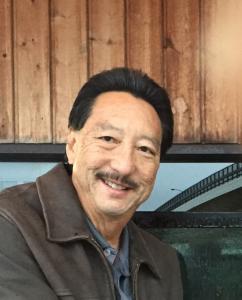Michael Seki

Voices from the Science Centers
Voices from the Science Centers is an oral history initiative dedicated to documenting the institutional knowledge of fisheries scientists and administrators in the labs of NOAA’s Fisheries Science Centers.
Born and raised in Hawaii, Dr. Seki received his B.S. in Biology from the University of Oregon- Eugene, his M.S. in Oceanography from the University of Hawaii-Manoa, and his PhD in Marine Environment and Resources from Hokkaido University Graduate School of Fisheries Science in Hakodate. He began working with at the Pacific Island Fisheries Science Center in 1980. He is currently the Science Center Director.
Interview contains discussions of: Seabirds, high seas drift nets, satellite technology, seamounts, long line fisheries, swordfish, tuna, JIMAR.
Dr. Seki provides a rich description of his career, his work, and his research. He also notes the changing face of research in the Pacific as well as use of different technologies.
Please Note: The oral histories in this collection are protected by copyright and have been created for educational, research and personal use as described by the Fair Use Doctrine in the U.S. Copyright law. Please reach out Voices@noaa.gov to let us know how these interviews are being used in your research, project, exhibit, etc. The Voices staff can help provide other useful resources related to your inquiry.
The NOAA mission is to understand and predict changes in climate, weather, oceans, and coasts, to share that knowledge and information with others, and to conserve and manage coastal and marine ecosystems and resources. The Voices Oral History Archives offers public access to a wide range of accounts, including historical materials that are products of their particular times, and may contain offensive language or negative stereotypes.
Voices Oral History Archives does not verify the accuracy of materials submitted to us. The opinions expressed in the interviews are those of the interviewee only. The interviews here have been made available to the public only after the interviewer has confirmed that they have obtained consent.
